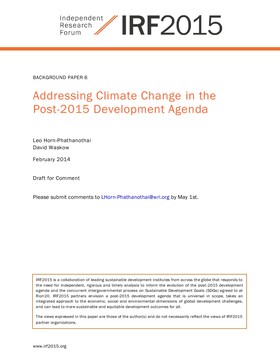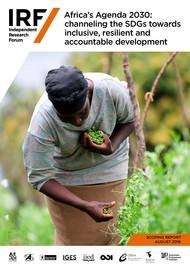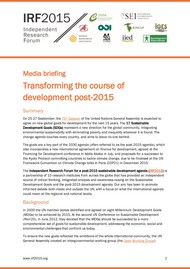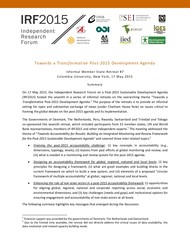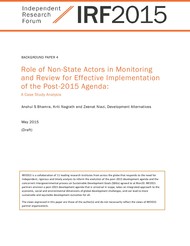Addressing Climate Change in the Post-2015 Development Agenda
The global context for development has been transformed in the fourteen years since the Millennium Development Goals (MDGs) were agreed. Developing countries—from emerging economies to least developed countries—are now more firmly in the driving seat in shaping their own development strategies. Numerous countries have graduated to middle income status since 2000, and there are now only 36 low income countries left, mostly located in Sub-Saharan Africa.
While extreme poverty continues to be a pressing issue, the world managed to achieve MDG target 1a (halving the proportion of people living below $1.25 per day) seven years ahead of schedule.
Yet climate change could increasingly and dramatically undermine, and even reverse, many of those gains over the coming decades. As the 2013 Human Development Report for Peru stated succinctly, "If we disregard sustainability, whatever progress we have made in poverty reduction or improvement of human development will just be erased due to climate change.”
Climate change and development are inextricably linked, both in terms of the impacts that will be felt and in terms of the responses and solutions that are both necessary and possible. Quite importantly, policies and investments that advance economic development—when designed properly—can often be the same policies and investments that tackle the causes and consequences of climate change. With sustainable development as our overarching objective, we can find ways to reap substantial benefits from aligning development and climate frameworks and effectively integrating climate action into our development strategies. This is particularly significant given the concurrent timing of the post-2015 development agenda, UNFCCC 2015 climate agreement, the Hyogo Framework for Action, and Financing for Development summit. Decision-makers will also need to be mindful to avoid using the Post-2015 Framework to address issues better left to other processes, including the UNFCCC.
Cite this publication
Available at https://www.iied.org/g04346
